How Enneagram 2s, 3s, and 4s Defend Themselves from Shame
Heart types—Enneagram 2s, 3s, and 4s—are driven by the need to be loved, valued, and seen for who they truly are. But deep down, they grapple with shame and feelings of inadequacy. They felt a deep sense of being unloved for who they truly were as children. Twos felt they were only loved if they were selfless; their needs were “too much” for others. Threes felt they were loved only when they were successes, so they tried to curate a “winner” image. Fours felt like they didn’t belong anywhere, that nobody really saw them, so they embraced the role of “misfit”; attaching themselves to that label without being able to identify who they were underneath all of it.
Heart types inherently struggle with feelings of worthlessness. To combat this feeling, they try to “earn” love.

- Twos do this by becoming indispensable, earning love by being needed.
- Threes work towards success, hoping for validation and worth via achievement.
- Fours craft a story that gives their pain and difference significance and meaning.
If you’re a heart type, you might feel like you’re emotions are too overwhelming, too sensitive, too painful to fully embody. So you build walls around yourself, creating an identity to feel safe and worthy. The problem is, you may not even realize you’re doing it. Instead of letting yourself experience the full weight of your feelings, you substitute them with an image you present to the world, hoping that image will bring you love and approval. The more you try to maintain this image, the more disconnected you feel from your true self. And when people don’t respond to your projected identity the way you hoped, it can trigger hostility, shame, and frustration.
Not sure what your Enneagram type is? You can find out by taking our questionnaire.
How Enneagram 2s, 3s, and 4s Defend Themselves from Shame
Twos: The Wall of Wanting to Be Needed
As a Two, your focus is on others. You want to be seen as loving, helpful, and kind, so you pour your energy into making sure people need you. Your wall is built from constant acts of giving, trying to secure validation through others’ appreciation. But inside, you might feel frustrated and unappreciated. You often push down those feelings because you fear that showing frustration would make you unlikable, which threatens the image you’ve worked so hard to build. Deep down, you may feel that your value is conditional—if you aren’t helpful or needed, you question your worth. This cycle keeps you distant from your own feelings, making it hard to recognize what you need. You’ve successfully created a wall that keeps people from knowing the real you, and you worry that if they did really see you, they wouldn’t love you anymore.
Example: You’re always the first to offer help when your friends need something, whether it’s listening to their problems, organizing their birthday party, or picking up groceries for them when they’re busy. You thrive on the appreciation and gratitude they show you—it makes you feel valued. But deep down, you sometimes feel resentful, like you’re always giving but rarely receiving the same in return. One day, a close friend forgets to thank you after you’ve spent hours helping them, and you feel a sharp sting of disappointment. You convince yourself not to talk about it because you don’t want to seem “needy” (your worst nightmare).
Personal Growth Tip:
Start by asking yourself, “What do I feel?” Create space to acknowledge your own feelings, without dismissing them as unimportant or selfish. You matter beyond what you do for others. Try journaling about your own emotions and getting to know yourself deeply. Spend 15 minutes a day doing something just because you want to. The more you prioritize this, the more you’ll realize that you’re enough as you are and you can give out a sense of abundance rather than through exhausted self-sacrifice.
Find out more about Twos: Escaping the Trap of Flattery for Twos
Threes: The Wall of Accomplishment
As a Three, your wall is built from achievements and success. You’re driven to create a version of yourself that others will admire—someone accomplished, capable, and valuable. You project an image of success to the world, convincing yourself and others that this outer self is who you really are. You often felt as a child that what mattered about you was what you did, not who you were. But when things don’t go according to plan, or when you stumble, the shame underneath can rise up, making you question your worth. Deep down, you may feel like all the hard work is just a way to cover up an inner sense of worthlessness. The pressure to maintain your image is exhausting, and the fear of failure can lead to devastating burnout.
Example: You’ve always been the one to push yourself hard in your career, constantly aiming for the next promotion, the next big project, or the next award. Your partner often compliments you on your work ethic, and your friends admire your accomplishments. But one day, you make a mistake at work, and your boss criticizes you in front of the team. You feel a wave of shame, but instead of opening up about your feelings of failure, you bury yourself in work, trying to prove your worth again. When your partner asks if you’re okay, you shrug it off, saying, “I’m fine,” while secretly feeling like you’ve let everyone down. You hide behind the wall of success, hoping it will cover up the shame of not being perfect.
Personal Growth Tip:
Take time to reflect on who you are beyond your success—what are the qualities that make you valuable, even when no one is watching? Practice self-acceptance by embracing moments of rest and vulnerability. This will help you connect with the parts of yourself that aren’t driven by achievement but are still worthy of love and respect.
More About Threes: 10 Telltale Signs of an Unhealthy Enneagram 3
Fours: The Wall of Suffering and Difference
As a Four, you build your wall through your inner world of feelings, fantasies, and personal stories. You feel different from everyone else—more sensitive, more complicated, more alone. You hold onto your feelings of suffering, often believing in your own negative self-perceptions. You always felt different growing up, like you weren’t “right” or the same as people in your surroundings. To cope, you didn’t try to become what everyone else wanted. Instead, you embraced your role as outcast or misfit to create a wall of protection against further disappointment. After all, if you own the feeling and expect it, it can’t shock and wound you as deeply. You may spend your life cultivating a fantasy of someone who will finally see you for who you really are, acknowledge your pain, and rescue you from your suffering. But that longing for a rescuer can leave you feeling trapped in your suffering, unable to pull yourself out of it.
Example: You’ve always felt like the odd one out, even among your closest friends. You have deep emotions and unique perspectives that others don’t seem to understand. One day, at a gathering, you open up about a difficult experience from your past, but instead of feeling seen, you notice your friends shifting the conversation to something lighter. You feel a wave of isolation and shame, retreating further into yourself. You feel frustrated, humiliated, and convinced that nobody can tread the deep waters you’re submerged in to get to you.
Personal Growth Tip:
Start to notice how you latch on to moods and feelings in order to stay in a negative comfort zone. We all do this as humans. We create habits and patterns and ways of seeing ourselves that become comfortable, even if they’re not good for us. Twos see themselves as helpers, even if they’re destroying their peace by over-giving to others. Threes chase after success, even if they’re exhausted and drained in the pursuit. But these patterns are the “enemy we know” so we persist. When you feel misunderstood or unseen, take a step back and ask yourself, “What am I hoping to receive from others that I can start giving myself?” Just as you have a misfit identity, you also have a part of you that can feel joy, laughter, openness, and camaraderie. Set up small routines that put you in touch with other facets of who you are. Watch the sunrise in the morning and lean into the beauty, peace, and tranquility it brings. Or make your bed every morning, leaning into the discipline and stability it brings you. Start to cultivate positive routines that allow you to be more present in the abundance of the real world around you.
Find out more about Fours: 40 Iconic Enneagram Fours Characters From Movies and Television
What Do You Think?
Do you relate to these examples and experiences? Do you have any insights you could share with us and other readers? We’d love to hear from you in the comments! Find out more about your personality type in our eBooks, Discovering You: Unlocking the Power of Personality Type, The INFJ – Understanding the Mystic, and The INFP – Understanding the Dreamer. You can also connect with me via Facebook, Instagram, or Twitter!
Retry later



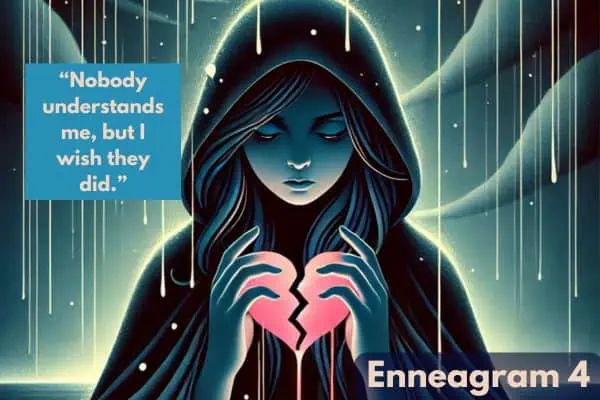






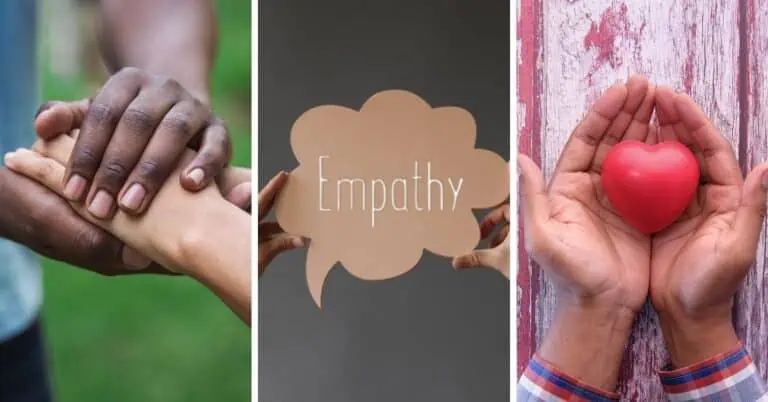
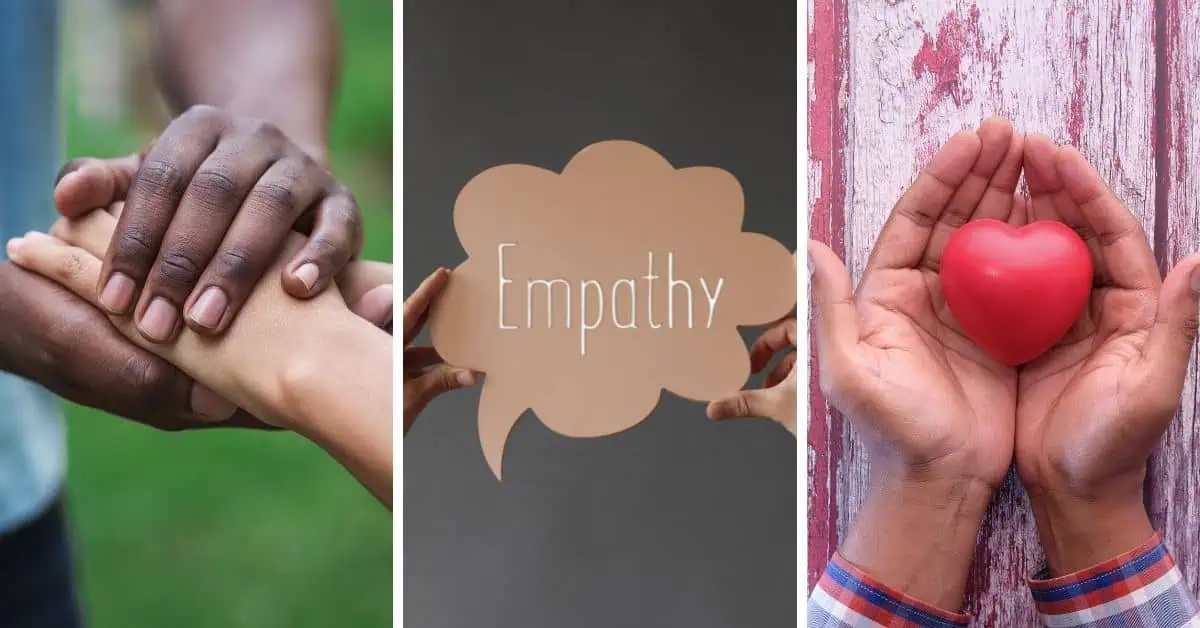
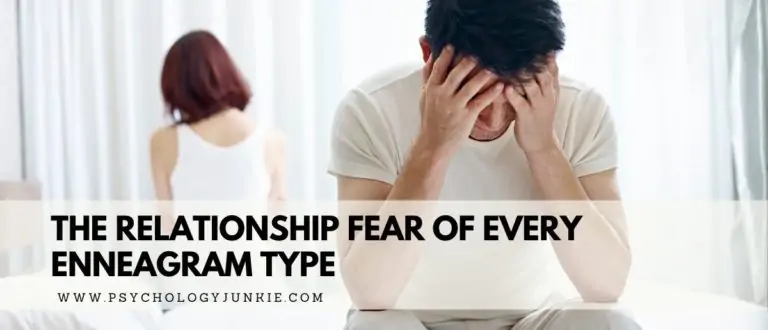
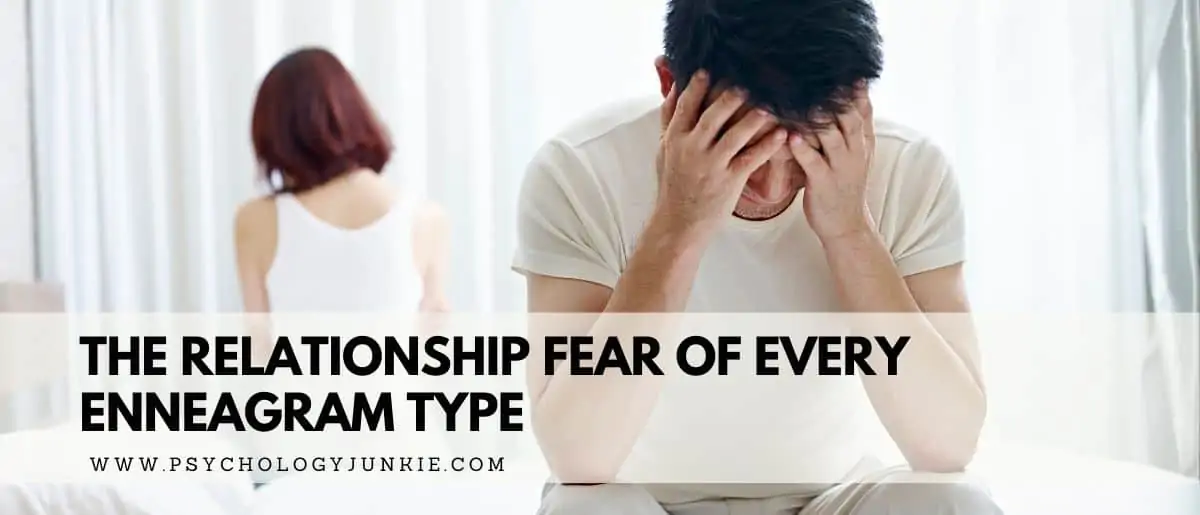


Thank you again for another amazing article! I loved seeing how the personal growth tips align with integration. I was wondering if you have ever written anything concerning tritype, or if that would be a possibility. I am a 954 myself and I loved connecting with type 4 in this article and type 9 in the previous one (as I look forward to doing so with type 5 in the next), as well as reading about and gaining understanding about all types. Some of my favorite articles have been about the connections between types, such as the one about the nine Enneagram types and INFJ; that was particularly helpful and enlightening. I also enjoyed reading about the subtypes/instinctual variants. If there is ever an article written about tritypes, or other connections between types, I would love to read them.
Thank you for reading and I hope you have a wonderful day.
Are we about to get the next one? The 5,6,7 version of this one and the other one in the series?